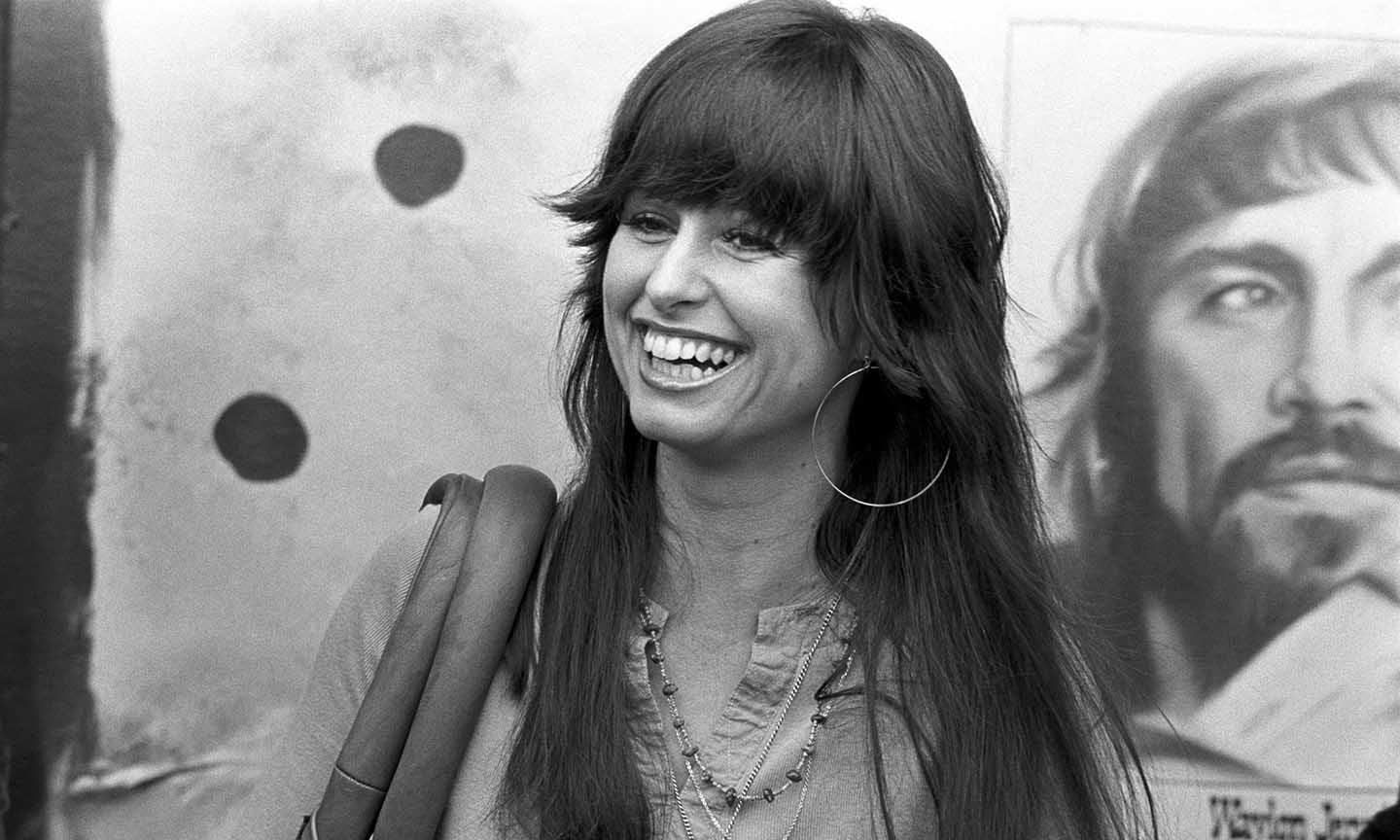The best songs by Jessi Colter: 20 country gems

The “First Lady of Outlaw Country” is a title that can give the impression Jessi Colter married into her respected position among the ’70s rebels who turned Nashville on its head. But Colter had already been making country music for nearly a decade when she met Waylon Jennings, writing hits under her first married name, Mirriam Eddy, and touring with her first husband, Duane Eddy. The Arizona native had a somewhat easier path to a recording contract when Waylon vouched for her, but her biggest hits were all her own: songs she composed, played piano and sang.
In this often overshadowed catalogue there are many gems, songs that have long been played by people who have been inspired by the work of Willie and Waylon and the Boys. However, Waylon was a loyal creative partner for Colter, as evidenced by their many duets over the years and the fact that he co-produced most of her work. “Jessi is one of the most talented people I have ever met,” Jennings wrote in the liner notes of her debut album. “She is original in everything she does.”
Below are 20 of Colter’s best songs, from the whiniest ballads to the cheekiest boot-stompers and everything in between.
Listen to the best songs from Jessi Colter now.
Let’s Go On (1978)
This JJ Cale song finds Colter reaching back to her country-soul roots (there’s even a horn section!) for a wild, party-ready result. Appearing on an album that, unusually for Colter, was all covers – likely in part due to pressure from record executives wanting to replicate the outsized success of “I’m Not Lisa,” this well-timed song helps show the wide range of Colter’s music and the genre as a whole in the late ’70s.
You Hung the Moon (Didn’t You, Waylon) (1976)
This love song, written by Colter as one half of outlaw country’s greatest power couple, was actually released as a single, albeit unsuccessfully. It’s endearingly sincere from Colter, and it also reflects the (platonic) feelings of so many country music fans who only wish they had the opportunity to be so effusive on a record. Like most of Colter’s records, this one was co-produced by Jennings, and he was featured on guitar and background vocals.
Out of the Rain (2006)
Colter’s first release after Jennings’ death in 2002. This song was originally recorded in the ’80s and features Jennings and her son Shooter. By the time it was released on an album, 22 years had passed since Colter’s last country LP. From the ashes was produced by Don Was, and on “Rain” he expressed Colter’s continued interest in gospel music and sounds for ensemble recording.
That’s the risk I have to take (1970)
This is where Colter’s Nashville credentials come into their own. “If I’m wrong about what I’m doing, that’s just a risk I have to take,” she sings with a sass worthy of Dolly or Loretta, against a musical backdrop created by Chet Atkins. While it’s not her most unique performance, it’s certainly convincing – especially for anyone who might have thought these outlaws didn’t have what it takes to play pure country music.
Here I am (1976)
Clearly a variation of “I’m Not Lisa,” this original composition puts Colter’s moody vocals front and center as she pleads with her indifferent lover with almost anthemic solemnity. The song’s confessional tone is reminiscent of Carole King and has more in common with the adult pop of the late ’60s and early ’70s than the country music of the era.
Who Walks Through Your Memory (Billy Jo) (1975)
This song finds Colter at her most traditional country, lamenting lost love over a steady shuffle with more than a slight tremor in her voice as she serenades Billy Jo. Like all the songs on her breakthrough album, it was an original composition by Colter – complete with a fresh image, that of a past love wandering through someone’s memory to explain a familiar theme.
Hold Back the Tears (1978)
The singer-songwriter sounded as natural as possible on this Neil Young song, which he released the year before with Linda Ronstadt on backing vocals. Colter makes the song her own here, bringing out the twang to great effect and reinforcing the song’s message of cautious hope. The album was a commercial failure, but the many cover versions showed the singer’s versatility.
Suspicious Thoughts (1970)
Colter and Jennings decided to re-record this Elvis hit when it was still brand new – and it reached the country charts twice, both when it was first released as a non-album single and when it was released on the Wanted! The Outlaws compilation. It works perfectly as a duet and as a showcase for the pair’s chemistry in and out of the studio. The country elements are amped up, including a full shuffle section, but the original Memphis groove still comes through, too.
It’s Morning (and I Still Love You) (1975)
Colter wanted to follow on from the two crossover hits from her debut album Capitol and offered this upbeat, upbeat song that gave a one-night stand a happy ending. Like her first two hits, it’s an original composition in which Colter also plays piano; unlike those, it only reached number 11 on Billboard’s country charts. More hippie-like and exploratory than her previous releases, the plaintive pedal steel guitar is pushed to the background in favor of a folksy arpeggio guitar.
No Way (1976)
“Way” is a rollicking song with Jennings on backing vocals and is so anthemic that you would think it had been covered many times before – or at least released as a single. Instead, it remained a rough diamondto use the chosen metaphor of the album title, relegated to the status of “album cut”, despite the fact that Colter and Jennings do their best.
How a Cowboy Rocks and Rolls (1978)
The title track from Colter’s fifth studio album contains a metaphor that fits perfectly with the country-rock sounds associated with the Outlaws: a cowboy rocking and rolling… and away. It’s a pretty, relatively unadorned song, save for Colter’s always charming piano playing and gentle backing vocals from Jennings. “Life’s just a big old rodeo,” she sings, adding a thoughtful note to the Western fervor that accompanied the Outlaws’ fame.
You Were Never Loved (The Way I Would Love You) (1975)
The A-side of “What Happened To Blue Eyes,” this sexy, stripped-down single narrowly missed another big hit for the singer-songwriter during her most successful period. With an almost Bobbie Gentry-esque bluesiness, Colter makes a confident, passionate promise that sounds daring even in the context of the era’s bedroom country trend. It’s a welcome anomaly in her catalog, music that’s more Southern than strictly country.
What you want to say (1971)
A one-off single that was eventually re-released on Wanted! The Outlaws“Say” is another classic Colter composition – all engaging melody and striking vocals with a subtle, eccentric twist on conventional country songwriting. This song is all outlaw, moody and conversational at the same time, resisting polish and pop. It never became a hit, but its place on Wanted!the first platinum album in country music history, ensured that it would be remembered forever.
Maybe You Should Have Listened (1978)
Colter was one of several country singers who hoped to score a hit with this Buzz Rabin composition, but her timeless, sensitive interpretation is certainly unique. Delivered with plenty of pathos and pedal steel, her performance is very Nashville, yet palpably sad; her warbling cuts through the house band’s talent to the core.
I’m Not the One (1969)
Colter’s first duet with Jennings was written and released the year they met and married. Although it didn’t chart, its bright energy and easygoing country-soul sound showed that the pair had something special together – and that neither sounded quite like anything else Nashville had to offer at that point. Capable of rich, gospel-tinged power and quaking balladry, Colter’s voice was a little more sensual than many of her Nashville peers – a quality evident in this cheeky back-and-forth.
I thought I heard you calling my name (1976)
A classic-sounding country song about the ghost of a lost love, this was Colter’s last single to reach the Top 40 on the country charts. However, it’s a compelling demonstration of her vocal range and haunting piano playing, an example of her skill as a performer who proved that women could pull off the raucous outlaw sound just as well as men. It has the intimate sound of an after-hours roadhouse instead of studio glitz.
Storms never last (1975/1981)
Another country classic penned by Colter that took several releases to gain traction is “Storms,” which is both deeply romantic and unusually optimistic for the often melancholy singer. A 1978 version recorded by Dr. Hook on the Colter album helped make the song a standard, as did Colter’s later duet with Jennings for their 1981 joint album. Leather and laceThis version eventually made it into the country charts and reached number 17.
I am not Lisa (1975)
Jessi Colter was already a music industry veteran when she released her first chart-topping single, which also became the most successful of her career. The plaintive ballad, which Colter wrote, sang and played piano on herself, peaked at No. 4 on the Billboard Hot 100 chart and topped the country charts. Although Colter would later be associated with the burgeoning outlaw country movement, “Lisa” is much closer to the pop style of the era, despite its languishing pedal steel guitar and the fact that it was co-produced by Colter’s husband, Waylon Jennings. With its distinctive take on a classic country theme (a person who can’t get over her ex), “Lisa” became one of Colter’s signature songs – notas some would call it, proof that she is a one-hit wonder.
Why have you been gone so long (1970)
Colter didn’t write this song herself—Johnny Darrell had a minor hit with the Mickey Newbury song in 1969—but her deeply groovy version has long been the definitive one. This country-soul classic transforms the original from a Music Row standard into something that fits with the era’s fearless genre fusion. Her voice is clear and raw on what, in hindsight, was something of an opening shot for her musical mission outside the norm.
Whatever happened to blue eyes?/ I’m looking for blue eyes (1975/1976)
Colter’s gift for melody is rarely better showcased than here, in a timeless composition that has become a country classic. “Blue Eyes” is another pathetically charged ballad that was originally intended as a follow-up to the singer-songwriter’s breakthrough hit “I’m Not Lisa” – this time, however, Colter backed her unpretentious, church-trained vocals and piano with a distinctly two-step country shuffle. The Outlaws’ first lady cemented her place when she recorded this track for the Wanted! The Outlaws Compilation that strips out all pop elements in favor of a minimalist sound centered around her powerful voice.
Listen to the best songs from Jessi Colter now.


